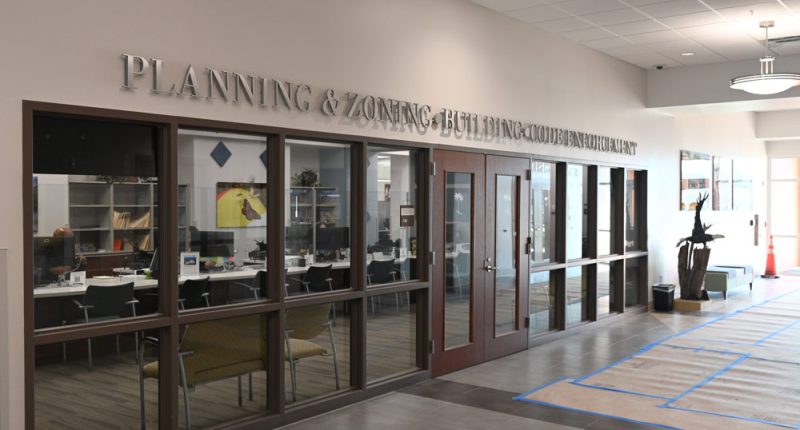
Starting June 1, all Palm Coast customers paying their utility bills by credit or debit card–67 percent of customers last year–will see their bills increase by $1.95 per month, or 3.5 percent if they pay in person. Payments by electronic checks will cost 43 cents per transaction.
The Palm Coast City Council in February, overriding its finance director’s recommendation, unanimously approved changing the payment model to pass those costs on to customers. Until now, the city was absorbing $700,000 worth of such fees.
Customers may still avoid paying the new transaction fees if they pay bills by check (by mail or in person) or in cash, in person. The new model is similar to that of Flagler Beach. Ormond Beach still absorbs transaction fees.
While customers are used to paying transaction fees for most of the services they pay for, the timing of the city’s new transaction costs may create an additional if temporary headache for the council: the fees are in addition to the 36 percent utility rate increase over the next 30 months that the council approved two weeks after approving the new transaction fees. The rate increase kicked in last month.
Utility bills include water, sewer, garbage and stormwater fees. A household paying $200 a month will see an additional $1.95 per month, or $23 per year, for the transaction fee, unless the 2.45 percent fee applies, which would then raise the monthly transaction cost to $4.90, or $59 for the year.
Until this year, only building department fees were passed on to customers. All other transaction fees were absorbed by the city. The city’s golf club and its tennis club also started passing transaction fees on to customers this year.
Utilities, stormwater and garbage accounts are run as “enterprise funds,” meaning that they are self-sustaining and fee-based, rather than tax-supported. But business tax recipes and code enforcement fines will also be subject to transaction fees from now on.
“I don’t think that everything should be run like a business,” Council member Theresa Pontieri said. “I don’t think Parks and Rec should be run like a business in the city. But I do think that the enterprise funds should be so in my estimation. User fees like this should be passed on to the user for an enterprise fund” like the utility and stormwater fund.
“I agree that the enterprise prize fund should be like that as well as at a minimum, I think code should be that way,” Council member Ty Miller said, “I don’t see any world that the city should be absorbing costs associated with code violations.”
The change in policy was part of the city’s approval in February of new contracts with Paymentus and Tyler Technologies, the two companies that process electronic payments for the city’s customers. So far this year, the city has paid its payment-processing companies $639,000.
City Finance Director Helena Alves asked the council whether it wanted to continue along the same model–absorbing the fees rather than passing them on. “We would propose to maintain the same type of arrangement unless you wanted to change it,” Alves told the council.
Alves had spoken about the options with the city’s rate consultant, who recommended against adding another layer between the customer and the city–that layer being the processing fee. “Do I want to pay the fee, or do I want to process by check?” Alves said, imagining a customer’s thinking, when faced with new fees, and knowing that the majority of customers pay by credit card, remotely. “You already have your account set up, you have your credit card in, and there only seems to be an interruption in that bill-to-payment when your credit card is set to expire and you have to go in and renew it, versus you’re adding another decision point.”
Miller said customers face decision points innumerable times, and still have the option to avoid fees. And there’s no question that the city would save considerable sums.
“The savings to the city would be approximately $700,000 because that’s what costs to process our payments. That would be a fee that you would pass on to your users,” Alves said. But she also said something that appeared not to register with council members: the costs the city was absorbing were already built into the rates currently paid by the residents. “Same as if you’re walking in paying by cash,” Alves said. “Those costs are calculated into the rates that are paid by the residents.”
In other words, the current rates reflect the cost of the transaction fees, but now that the city will no longer bear that cost, it will, in effect, realize an additional windfall.
The amended master service agreement with Tyler Technologies “will allow customers to see real-time payments through the customer portal and allow the city to upgrade the cashiering software with minimal budget impacts,” a memo to the council stated. “The new master services agreement with Paymentus will allow the City to utilize some of the new features such as real-time lockbox payments, scan-to-pay at local retailers, and allow customer[s] to keep their current Utility customer portal.”
On Thursday, the city issued the following breakdown of how fees will and will not apply, starting June 1.
Fee Structure Effective June 1, 2025:
In-Person Payments:
- Customer Service payments made by credit/debit card: 3.5% processing fee (minimum fee: $2.50)
- Community Development payments made by credit/debit card or digital wallet: 2.45% processing fee (minimum fee: $2.50)
Online Payments:
- Utility Bills (credit/debit/digital wallet): $1.95 per transaction
- Utility Bills (ACH/eCheck): $0.43 per transaction
- All other non-utility payments (credit/debit/digital wallet): 2.45% processing fee
- All other non-utility payments (ACH/eCheck): $0.43 per transaction
Transaction Limits:
- Maximum online payment for non-Utility Billing (e.g., Building Permits): $50,000
- Maximum online payment for Utility Bills: $10,000
No fees will be charged for payments made by cash, personal or company checks, money orders, or bill payments initiated directly through your bank.






